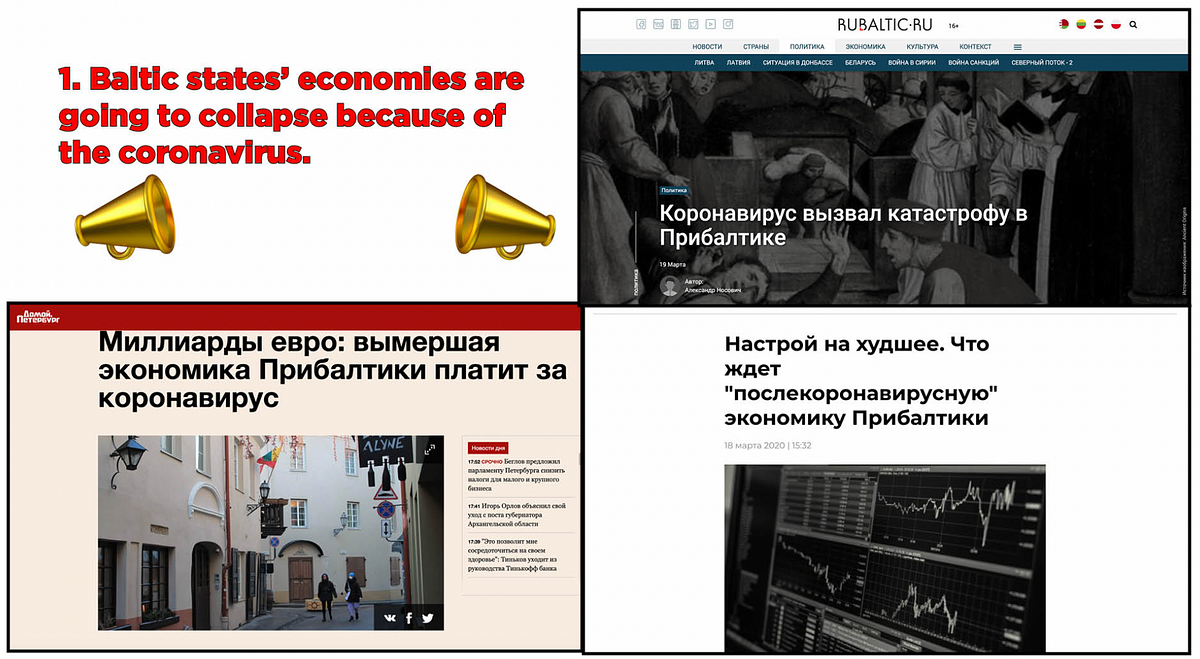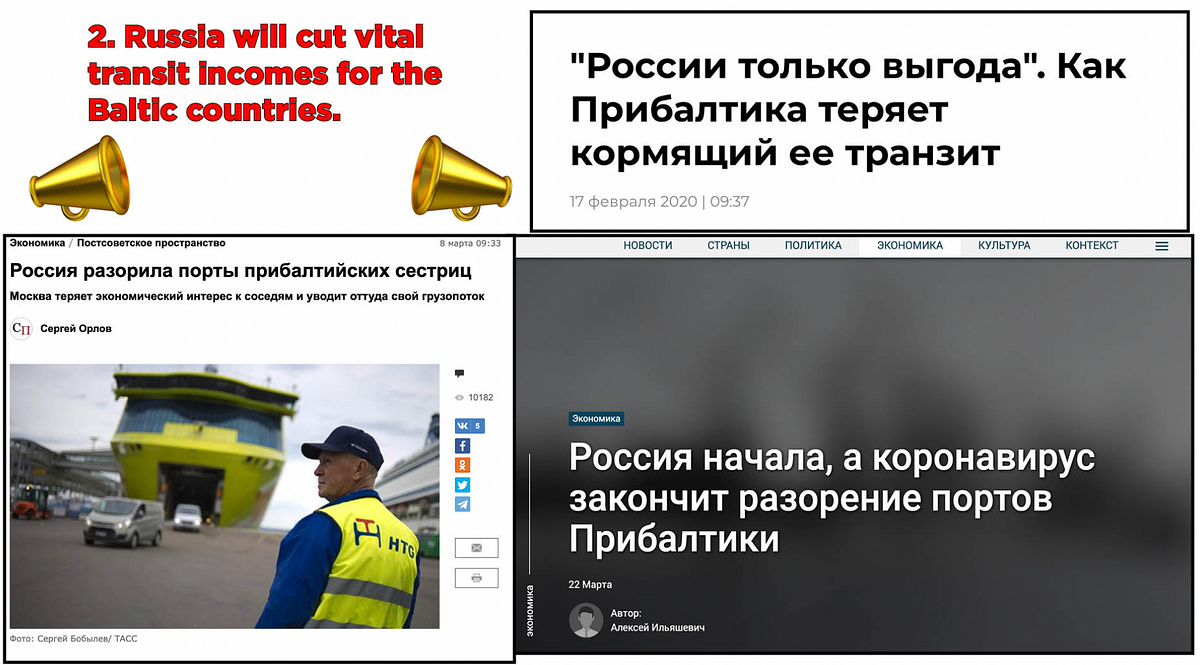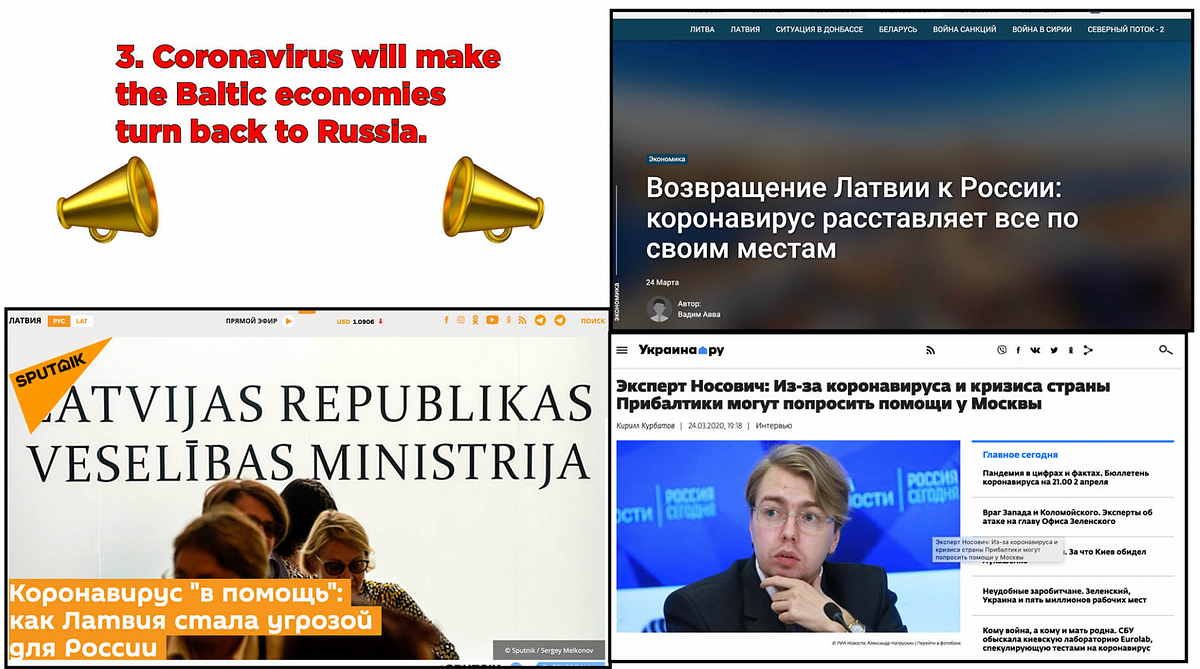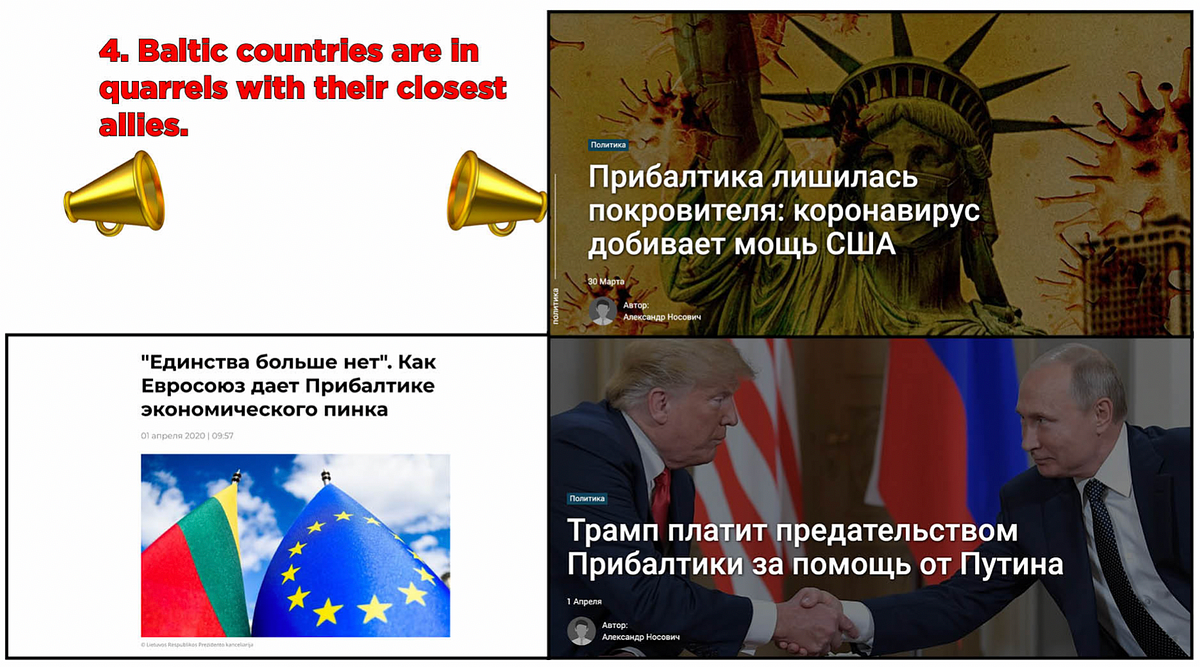Pro-Kremlin outlets “predict” coronavirus-driven economic collapse of the Baltic countries
With the spread of COVID-19, pro-Kremlin
Pro-Kremlin outlets “predict” coronavirus-driven economic collapse of the Baltic countries

With the spread of COVID-19, pro-Kremlin media outlets stoke fear with stories of economic collapse in the Baltic states

As the Baltic states went into quarantine, pro-Kremlin media predicted the crash of their economies.
Pro-Kremlin media outlets routinely push various narratives targeting the Baltic states; usually, these narratives accuse them of Russophobia, or describe them as aggressive. As COVID-19 puts pressure on the world’s economic system, however, these outlets have shifted their attention, publishing stories that claim the coronavirus is going to destroy the Baltic economies and undo their decades of post-Soviet progress.
Most of the surfaced stories appeared on media outlets primarily targeting a Baltic audience, such as RuBaltic.ru and BaltNews. The DFRLab identified four main narratives focusing on economic issues.
1. The Baltic states’ economies are going to collapse because of the coronavirus.
One of the most prevailing narratives circulating in pro-Kremlin media outlets claimed that Eastern European countries will face a severe blow to their economies as a result of COVID-19, with the “peripheral eastern regions of the European Union” — the Baltic countries — suffering most of all. Some of the stories claimed that the total damage to the Baltic states’ economies will equal the entire annual budget of one of the three countries. Other stories cherrypicked negative forecasts of economic doom from Baltic economists. Most of these reports stated that the last time the Baltic economies were hit so hard was the 2008 global financial crisis.

2. Russia will cut vital transit income for the Baltic countries.
Another prominent narrative claimed that Russia will cut vital transit income from the Baltic countries and predicted that the effects would be devastating. The stories argued that existing trade routes between the Baltic states and Russia are critical for both parties. The first articles, which surfaced in early March, stated that Russia was losing interest in the Baltic ports and diverting cargo elsewhere. On March 22, articles surfaced that alleged the pandemic will be the final blow to these ports’ economic health.

3. Coronavirus will make the Baltic economies turn back toward Russia.
The third identified narrative argued that the Baltic economies will have to turn back toward Russia again due to the pandemic. In most of the stories, an “expert” named Alexander Nosovich was quoted. The stories claimed that the European Union was doing nothing to help the Baltic region; as a result, the Baltic states will have to turn back toward the Russian market soon, even if doing so will force them to “stop being Russophobic.” The most-read story was published on March 24 and argued that Latvia would have to rekindle its strategic cooperation with Russia due to the economic strain brought on by the outbreak.

4. The Baltic countries are quarreling with their closest allies.
The last narrative that the DFRLab identified claimed that the Baltic countries were arguing with their closest allies: the members of the transatlantic alliance. Some stories claimed that relations were strained with Poland because of the latter’s strict quarantine measures. Other stories targeted relations with the European Union, claiming that Brussels had cared for the “New Europe” for too long and would no longer make sacrifices for the sake of the Baltic countries. Lastly, some stories claimed that the Baltic states would lose the support of their main patron, the United States, due to COVID-19. According to this narrative, the U.S. was preoccupied with its own outbreak, and thus would not be able to care for the Baltic economies or security. This narrative argued that the fact that U.S. President Donald Trump asked Russian President Vladimir Putin for humanitarian assistance amid the pandemic revealed that the United States was willing to choose cooperation with Russia over providing support to the Baltic states.

Lukas Andriukaitis is an Associate Director with the Digital Forensic Research Lab;
Follow along for more in-depth analysis from our #DigitalSherlocks.

